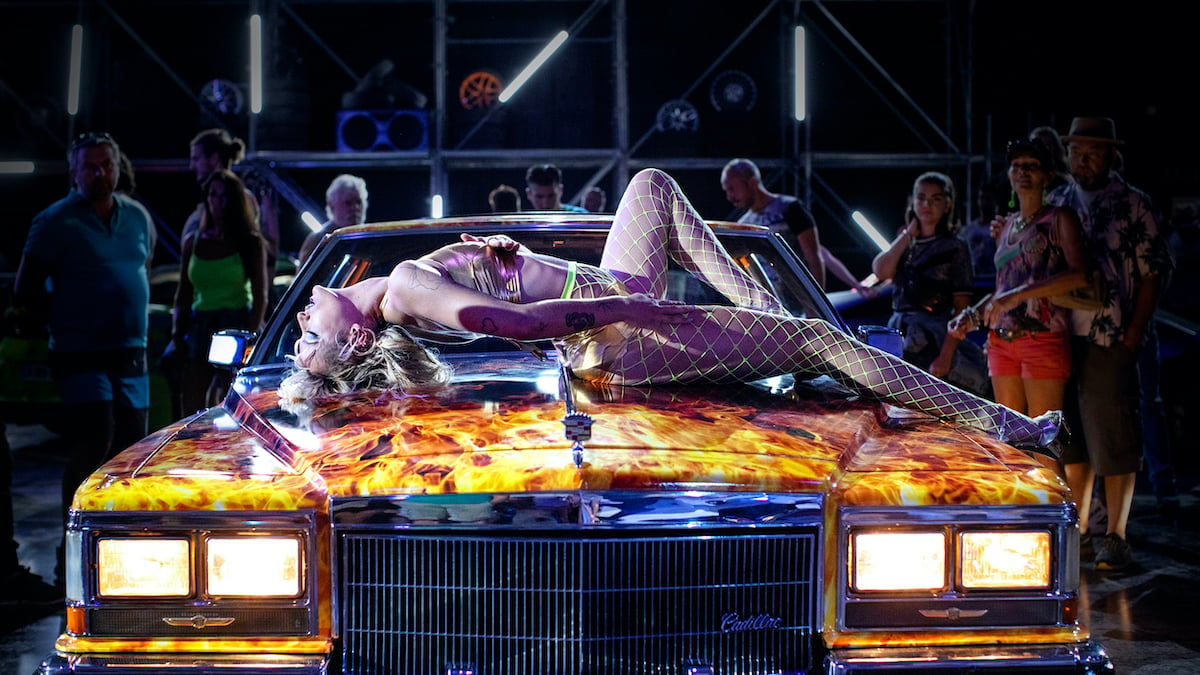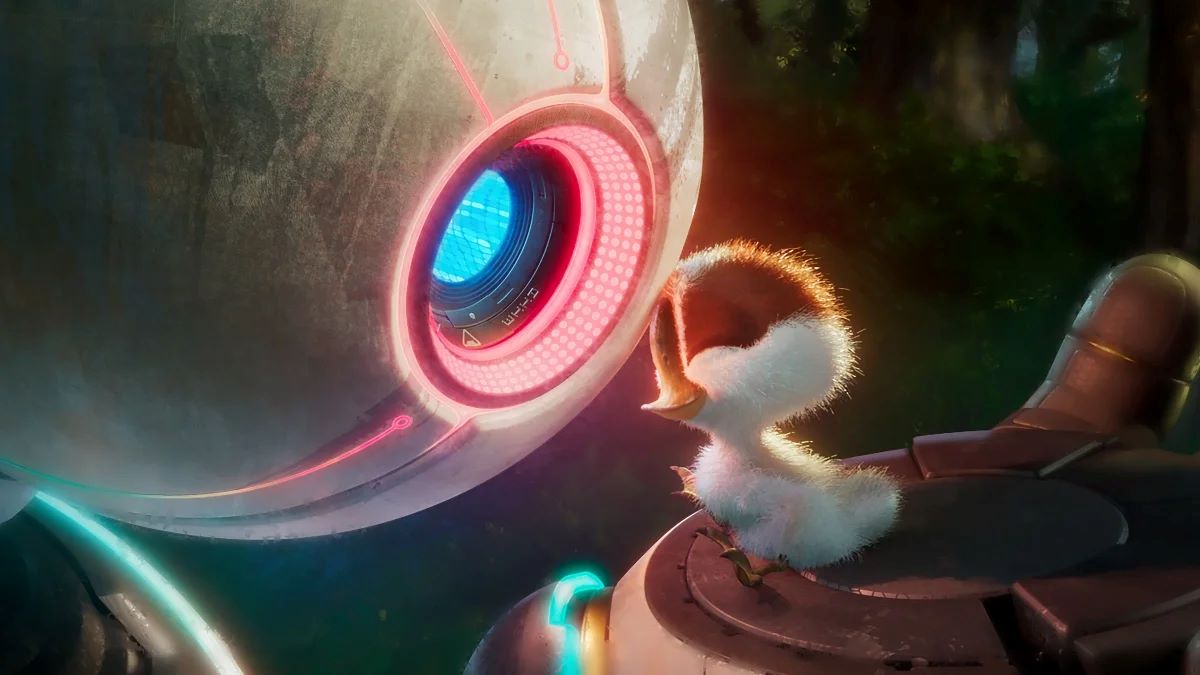*Warning: minor spoilers for Titane ahead*
Nothing could ever possibly prepare cold audiences for the scintillating, shocking yet tender ride that is Titane.
One of the hottest movies of the year, Julia Ducournau’s Palme d’Or-winning sophomore feature stubbornly refuses to be labeled. Much like its protagonist Alexia (Agathe Rousselle), saved by a titanium plate implanted in her skull as a child, the film is a hybrid of flesh and hard metal residing at the intersection between different genres.
Screening at BFI London Film Festival, Titane has sent shockwaves through the festival circuit for the scene where the protagonist, a psychopath who dances at car shows, has sex with a shiny Cadillac. This fuel-injected encounter doubles up as a scene where Alexia owns her sexuality, having old men yelling at clouds as the most common reaction.
And it’s not just this turbo-powered sex scene that has puzzled some viewers: Alexia soon discovers she is pregnant. Cradling this alien yet familiar being growing inside of her, she is forced to flee the south of France where she has left a bloody trail behind.
Those familiar with Ducournau’s excellent feature debut Raw might look for squeamish body horror scenes acting as a catalyst for self-discovery. Titane has all of that and more, packing a soft, emotional punch beneath its sturdy surface.
An all-encompassing machine drunk on petrol, this film might not seem for the faint of heart at a first glance. But gore aside — and, mind you, there is plenty — Titane speaks volumes about the connections we make and look for in an indifferent, hostile world.
Alexia’s story stems from a place of loneliness and untamed feral instincts. Wrapped in fishnets and neon mesh, she unleashes her wants and needs by grazing the icy surface of stunning car hoods. With cars, she is somewhat in control of her body; she riotously retains her agency. Dealing with humans, however, is another matter. Alexia interacts with others, and lovers particularly, in a ghastly, hyper-violent fashion. This changes when Alexia changes, leaving her grim everyday behind and embracing a new self.
The second act of the film, and by far the most unpredictable part, questions the construct of gender as a binary. Ultimately, Titane is a tale of love and identity, in all the various forms those can take on outside the constraints of cisheteronormativity.
Like a Shakespearean character, Alexia plays with gender-fluidity to get her ways. Yet there’s an added layer to her decision to shed her old persona and dancing attire in order to escape. A character that can be read as non-binary (we’re going to use they/them pronouns from now on), the protagonist embarks on a self-affirmation journey, finding more than what they had bargained for. Posing as a young man, Alexia sneaks their way out of a dead-end life and into the welcoming home of forlorn firefighter commander Vincent (Vincent Lindon).
Without indulging in spoilers, this second half turns Alexia’s body into a political weapon. While their double identity is played for laughs, too, the hybrid, androgynous appearance also becomes a powerful tool of self-affirmation. Alexia’s vessel carries feminine and masculine elements at once, bringing the lead closer to a god-like figure than a human being.
At first reluctant, Alexia finds themselves by being someone else. With their looks and attitude, the protagonist challenges Vincent’s firefighting squad, a male-dominated, toxic environment that is not quite ready to embrace diversity.
Alexia’s journey would be void without Vincent, with whom they establish a familial relationship that goes well beyond appearances and conventions. Ducournau, who co-wrote the movie, infuses Alexia and Vincent’s scenes with a precious fondness you almost forget it’s a body horror you’re watching.
The filmmaker crafts an unexpectedly moving study on the different kinds of love one can experience during their lifetime, steering clear from giving Alexia a stale redemption arc through a heteronormative romance. By focusing on their unlikely bond with Vincent as well as their unborn child, Titane is a manifesto for acceptance.
“I don’t care what you are,” Vincent tells Alexia, proving that familial bonds should go above any silly attempt to define those we love.
It doesn’t matter whether one is related by blood or not. In fact, the film celebrates the concept of chosen family, a lifeline for so many within the queer community. When shunned by their relatives for being their true selves, LGBTQ+ people often recreate familial dynamics within their social groups, as seen on shows like FX’s Pose. The series zeroes in on the flamboyant ballroom culture, but also on the lifelong relationships between the scene’s older members — acting like parents — and the younger performers they mentor.
Family is a recurring theme for Ducournau. In her first work Raw, blood familial ties take center stage in the disquieting, ineluctable final scene. Including a Raw Easter egg, possibly hinting at a bigger connection between the two films, Titane will raise some necessary questions on acceptance and identity, if you’re willing to listen amidst the racing cars’ rumble.
Titane is in US cinemas now.
(image: Neon)
Want more stories like this? Become a subscriber and support the site!
—The Mary Sue has a strict comment policy that forbids, but is not limited to, personal insults toward anyone, hate speech, and trolling.—










Published: Oct 19, 2021 11:20 am